I am and have been managing major Programmes and Projects for my Clients. Here are some fundamental definitions and thoughts around my management style of these programmes and projects, which are based on my company’s way of working.
Programmes and projects are different
For both programmes and projects it is the outcomes that matter, not their outputs. Outputs are specified deliverables that are delivered within time, cost and quality constraints. Outcomes are the effects of change, which trigger the benefits for the programme or project.
Projects can exist in two environments:
• Standalone as part of overall corporate management
• As a part of a programme
A programme is a portfolio of projects and non-project activities that are co-ordinated and managed as a unit such that they achieve outcomes and realise benefits. The realisation of the benefits is usually managed within the scope of the programme and as such, they require active management of business change. Those who fill programme roles must show the required competencies and have the necessary skills and experience to achieve the change. A programme management approach lends itself to complex changes with delivery and benefits phased over time.
A project is a finite piece of work (it has a beginning and end). It’s undertaken in stages and carried out within defined cost and time constraints directed at achieving a stated objective. The realisation of the benefits doesn’t normally form part of the scope of a project. In a programme context, the realisation of the benefits is overseen through the programme sponsor and manager; in a non-programme context, these benefits are overseen by the part of the organisation which initiated the project. A project management approach lends itself to situations where delivery of the final output is not phased.
Effective programme and project management relies on four aspects;
• Accountability tells us what a person is accountable for doing and who they are accountable to.
• Methods and procedures are used if consistency in undertaking an activity adds value; if consistency does not add value, procedures are not needed.
• Systems and tools should make the operation of the procedures more effective and efficient.
• Culture sets the tone for how the accountabilities, procedure and tools are used in practice. For example, a culture of “distrust” will lead to more people being accountable for checking your work which leads to more complex procedures and tools.
Publishing procedures and providing tools is essential to effective programme and project management– but there’s a lot more to it. It is the way in which they are used that makes the difference. This is why it can be difficult to transfer a procedure from one organisation to another or, indeed, why something may stop working in an organisation that has undergone radical change.
10 Ways to Increase Sales Productivity without Hiring More Salespeople
The job of a sales manager is a challenging one. One of the biggest challenges that they face is how to keep a team of [...]
The 7 Sales Process Steps You Need to Reinforce
The 7 most important stages of the sales process are: Preparation & Research Prospecting Needs Assessment (Discovery) Pitch/Presentation Objection Handling Closing Follow-Ups, Repeat Business & [...]
Digital transformation in 2019: The business trends
The latest trends in digital transformation for next year reflect some particularly hard won lessons from the past few years, on both the business and [...]
The 6 Sales Skills That Will Make You Stand Out
With the rise of technology, it would seem that time spent developing "hard skills" would be useful. It's easy to think that future-proofing your sales [...]




